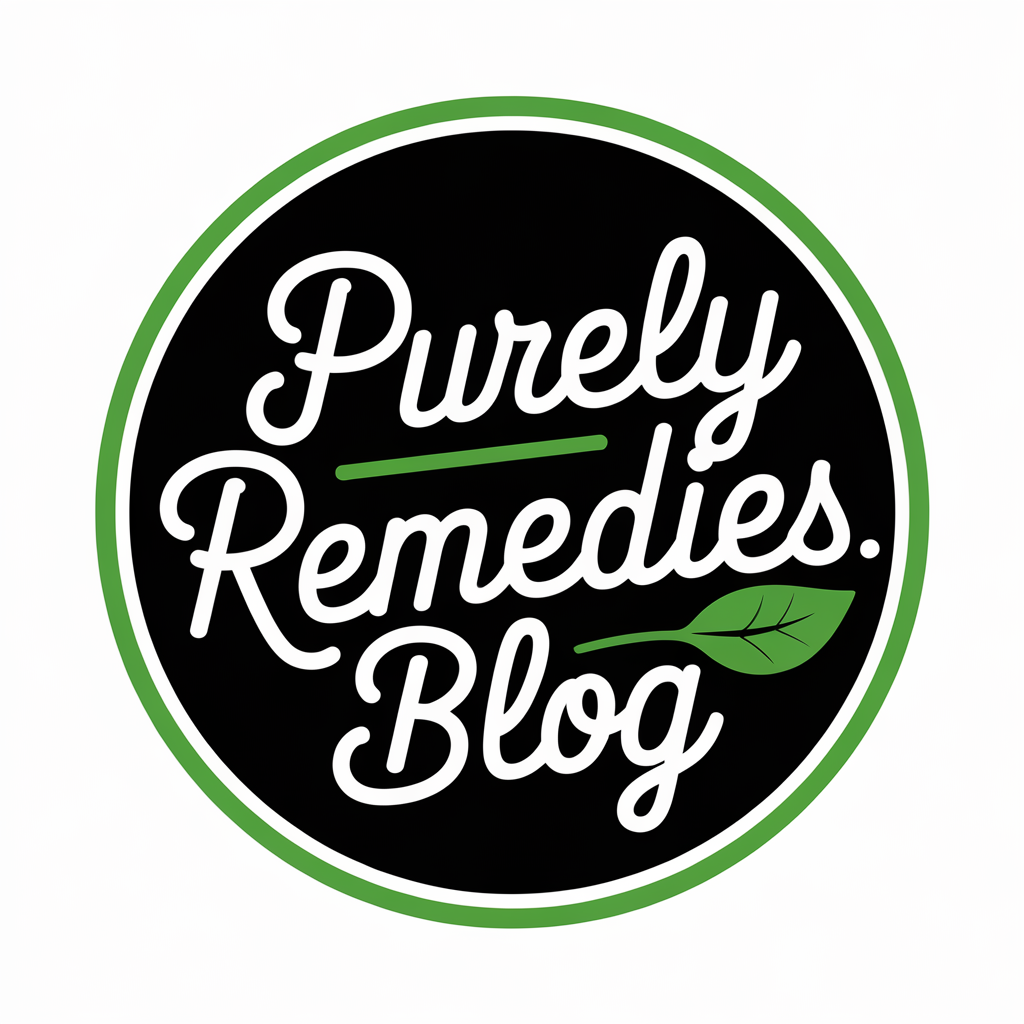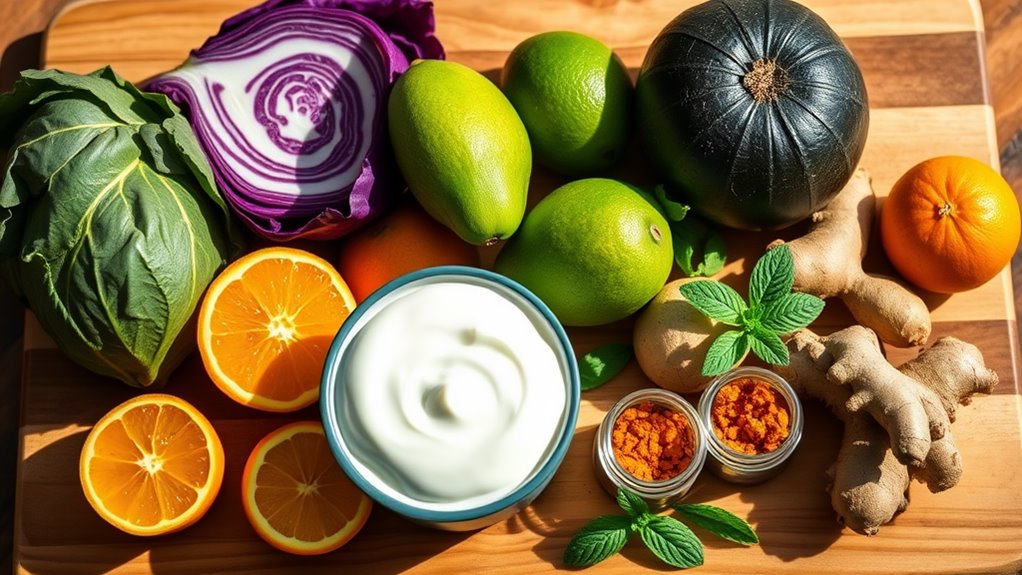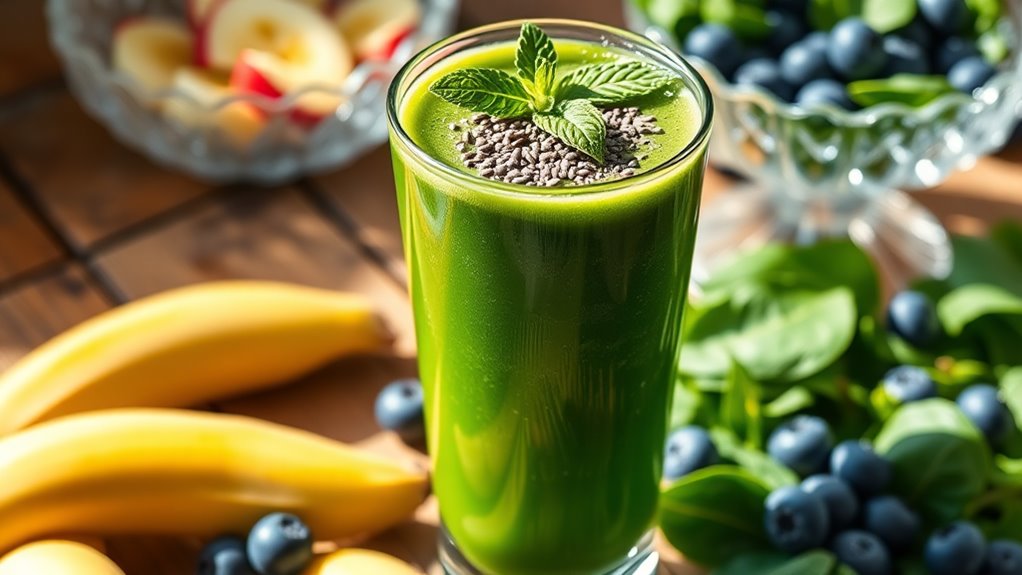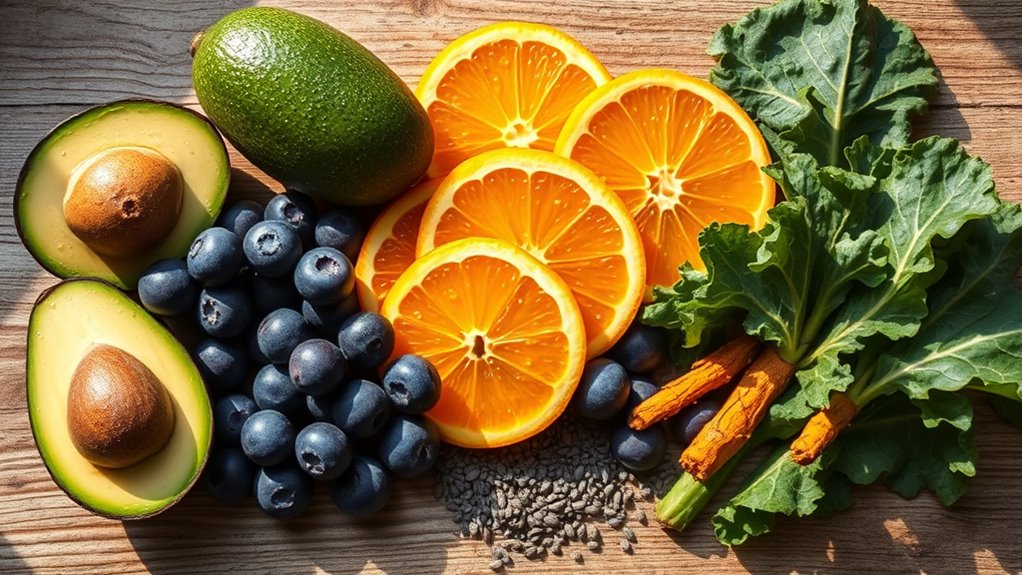Gut Health Hacks- Natural Foods That Actually Help
You might think that improving your gut health requires complicated diets or expensive supplements, but that’s not the case. Simple, natural foods can significantly enhance your gut function and overall well-being. From fermented options that boost probiotics to fiber-rich choices that nourish healthy bacteria, the right foods can make a real difference. Curious about which specific foods can support your gut health? Let’s explore some effective hacks together.
Fermented Foods: The Power of Probiotics
Fermented foods pack a powerful punch when it comes to gut health, thanks to their rich content of probiotics.
These beneficial bacteria help balance your gut microbiome, improving digestion and enhancing nutrient absorption.
Incorporating gut health foods like yogurt, kefir, sauerkraut, and kimchi into your diet can positively impact your overall well-being.
Research shows that regularly consuming these foods may even boost your immune system and reduce inflammation. Additionally, studies suggest that probiotics can improve gut health by restoring the balance of gut bacteria after disruptions.
Fiber-Rich Foods: Fuel for a Healthy Gut
How can fiber-rich foods transform your gut health?
By incorporating these foods into your diet, you can promote beneficial bacteria and improve digestion. Fiber acts as a prebiotic, fueling the good microbes in your gut. Additionally, a diverse intake of fiber-rich foods can enhance gut microbial diversity, which is vital for overall gut health.
Here are some fiber-rich foods to consider:
- Whole grains: Oats, quinoa, and brown rice support gut flora.
- Legumes: Beans, lentils, and chickpeas provide soluble and insoluble fiber.
- Fruits: Apples, berries, and bananas offer both fiber and important nutrients.
- Vegetables: Broccoli, carrots, and leafy greens are excellent sources of fiber.
Adding these foods can help maintain a balanced gut environment.
Bone Broth: A Healing Elixir for Digestion
Have you ever wondered why bone broth is often hailed as a healing elixir for digestion?
Packed with collagen, gelatin, and amino acids, it supports your gut lining and aids in reducing inflammation.
The nutrients in bone broth can help soothe digestive issues like leaky gut syndrome and irritable bowel syndrome (IBS).
Drinking it regularly may also enhance nutrient absorption, as the easily digestible proteins provide your body with essential building blocks.
Plus, its warm, comforting nature can be a gentle way to ease your digestive system, making it a delicious addition to your gut health routine.
Additionally, it is rich in essential nutrients that are vital for maintaining a healthy gut microbiome.
Give it a try!
Prebiotic Foods: Nourishing Your Gut Bacteria
Prebiotic foods play a crucial role in supporting your gut bacteria, helping to improve digestion and boost your overall health.
By incorporating top sources of prebiotics, like garlic, onions, and bananas, you can nourish these beneficial microbes daily. Additionally, fermented foods can enhance the effects of prebiotics by introducing more beneficial bacteria to your gut.
Let’s explore how these foods can benefit you and easy ways to include them in your meals.
Benefits of Prebiotics
A healthy gut relies on a diverse community of bacteria, and prebiotics play a crucial role in supporting this balance.
By consuming prebiotic-rich foods, you can enhance your gut health in several ways:
- Fuel for Good Bacteria: Prebiotics serve as nourishment for beneficial gut bacteria, promoting their growth.
- Improved Digestion: They help regulate bowel movements and reduce constipation.
- Enhanced Immune Function: A balanced gut microbiome supports your immune system.
- Mood Regulation: Gut health influences mental well-being, potentially reducing symptoms of anxiety and depression.
Incorporating prebiotics into your diet is a simple yet effective way to support your gut.
Top Prebiotic Foods
Incorporating a variety of prebiotic foods into your diet can significantly enhance your gut health.
Foods like garlic, onions, and leeks are rich in inulin, a type of fiber that nourishes beneficial gut bacteria. Bananas, especially when slightly green, provide resistant starch, promoting a healthy microbiome.
Whole grains like oats and barley also serve as excellent sources of prebiotics. Additionally, legumes such as lentils and chickpeas contribute fiber that supports gut function.
By including these foods, you’ll help your gut bacteria thrive, leading to improved digestion and overall well-being.
Embrace these tasty options to boost your gut health naturally!
Incorporating Prebiotics Daily
Adding prebiotic foods to your daily meals can be a game-changer for your gut health.
These foods feed your beneficial gut bacteria, promoting a balanced microbiome.
Here are some easy ways to incorporate them:
- Toss a handful of bananas into your morning smoothie.
- Add garlic or onions to your dinner recipes for flavor and health.
- Snack on raw asparagus or chicory root for a crunchy treat.
- Enjoy a serving of oatmeal topped with berries for a fiber boost.
Healthy Fats: Supporting Gut Integrity
Healthy fats play a crucial role in supporting gut integrity, acting as key players in maintaining the balance of your gut microbiome.
Incorporating sources like avocados, olive oil, and fatty fish can help reduce inflammation and promote healthy digestion.
These fats aid in the absorption of fat-soluble vitamins, which are essential for overall health.
Furthermore, omega-3 fatty acids found in fish and flaxseeds have been shown to enhance the diversity of gut bacteria, leading to improved gut function.
Additionally, natural healing foods such as nuts and seeds also contribute to gut health by providing essential nutrients and promoting a healthy microbiome.
Hydration: The Key to Optimal Digestion
How often do you consider the impact of hydration on your digestive health?
Staying properly hydrated is crucial for optimal digestion.
Water aids in breaking down food, allowing nutrients to absorb more effectively.
It can also help prevent constipation and maintain gut motility.
Here’s why hydration matters:
- Supports the production of digestive enzymes
- Aids in nutrient absorption
- Helps prevent bloating and discomfort
- Promotes a healthy gut microbiome
Make sure you drink enough water daily, and consider adding hydrating foods like cucumbers and oranges to your diet.
Your gut will thank you for it!





